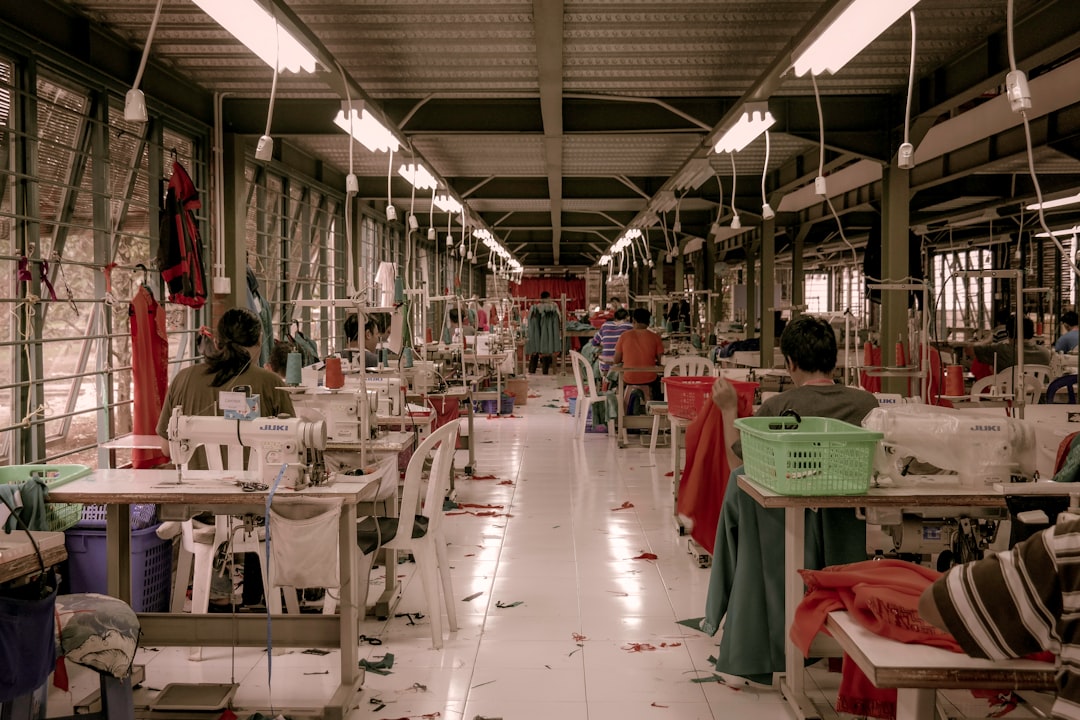All Nonfiction
- Bullying
- Books
- Academic
- Author Interviews
- Celebrity interviews
- College Articles
- College Essays
- Educator of the Year
- Heroes
- Interviews
- Memoir
- Personal Experience
- Sports
- Travel & Culture
All Opinions
- Bullying
- Current Events / Politics
- Discrimination
- Drugs / Alcohol / Smoking
- Entertainment / Celebrities
- Environment
- Love / Relationships
- Movies / Music / TV
- Pop Culture / Trends
- School / College
- Social Issues / Civics
- Spirituality / Religion
- Sports / Hobbies
All Hot Topics
- Bullying
- Community Service
- Environment
- Health
- Letters to the Editor
- Pride & Prejudice
- What Matters
- Back
Summer Guide
- Program Links
- Program Reviews
- Back
College Guide
- College Links
- College Reviews
- College Essays
- College Articles
- Back
Investing in sustainable fashion is not a luxury, but a necessity
Self-expression is as vital to life as the air we breathe, the water we drink, and the constant beating of our hearts. I have strived throughout my life to unearth the window into my soul and declare to my world with pride, “This is who I am.” For some, this opportunity materializes through art, some through literature, but for me, it always has and always will be through fashion.
And through such interest, I have developed a consciousness for the origins of the material I don my frame with, and an understanding of where this material may one day arrive. Despite my lifelong status as a style icon, the only times I have only shown pride in my style wearing outfits that were not the handiwork of mistreated workers and a contributor to climate destruction.
In many ways, I understand the appeal of fast fashion to my generation-- after all, the costs are impossible to beat. And if it weren’t an ethical issue, I might even be impressed by the ability of fast fashion companies to ride the everchanging wave of teen fashion trends, from sweater vests to tennis skirts to patchwork pants. But when I feel tempted by these popular brands, the horrors lying behind the products come to mind and I have no trouble putting away my cash.
In 2013, the tragic deaths following the Rana Plaza factory collapse in Bangladesh became frontpage news, exposing the dangerous working conditions in garment factories. What could have served as an awakening for a culture obsessed with bargains and sale prices did not disrupt the prolificacy of fast fashion and companies that have built their brands off of sweatshops and landfills piled with cheap fabric. And the cheaper the garment, the less guilt in disposing it, leading to excessive waste.
It is important to acknowledge that the teenagers buying into unethical brands are not single handedly responsible for the wrongdoings of such companies, and many are unaware of the true nature of their clothing. However, all consumers share the moral obligation to promote environmentally friendly products and ethical labor conditions. The common misconception surrounding sustainable fashion is affordability- for many consumers, slow fashion brands are completely out of budget. While ethical brands must be more costly in order to source high quality fabrics and to pay workers fairly, sustainability is centered around decreasing consumption. In other words, focus on buying less, and you can easily end up spending less. But secondhand shopping is always an option, and it is not something to be embarrassed about. As someone unafraid to style secondhand clothing, I’d say it is nice to know I am being ethically conscious and looking good while I do so.

Similar Articles
JOIN THE DISCUSSION
This article has 0 comments.
